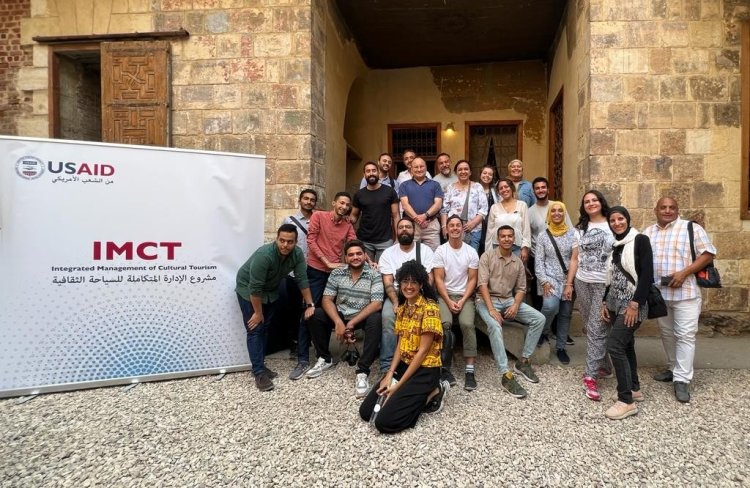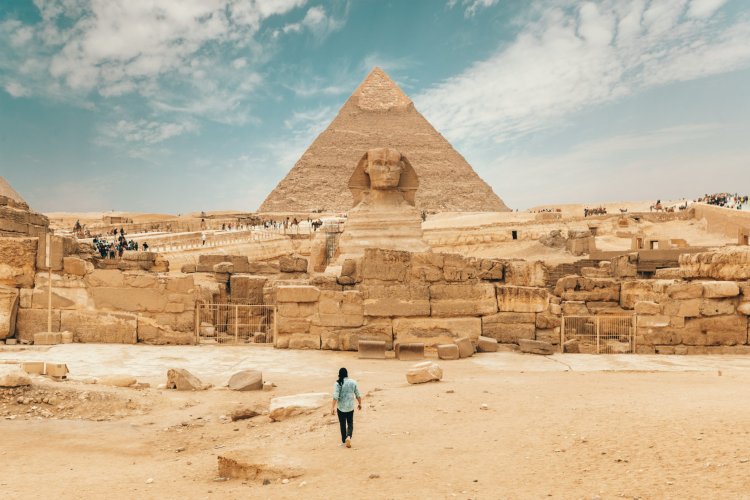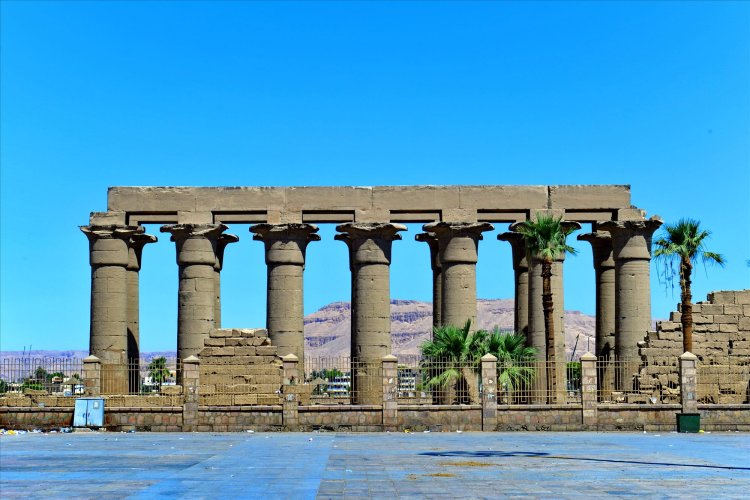$ 13 million.. Cost of the Integrated Management of Cultural Tourism (IMCT) project

The Forum for Investment in Services in Archaeological and Heritage Areas was launched in a Cairo hotel, and was organized by the Ministry of Tourism in partnership and cooperation with the United States Agency for International Development, in the presence of a number of ministers and a delegation from the United States Agency for International Development.
The goal of the forum is to rehabilitate and exploit some adaptable archaeological areas in a way that allows for the provision of an investment opportunity in them without compromising the antiquities, in accordance with the conditions and rules set by the Supreme Council of Antiquities within the framework of the Antiquities Protection Law, and the tourism specifications set by the Supreme Council of Antiquities.
Investment projects
Forum participants pointed out that investment projects that can be established in archaeological sites, whether restaurants, bazaars, boutique hotels, or others, offer huge opportunities for investment in Egypt, as these efforts come within the framework of the ministry’s strategy to provide a unique experience for all tourists interested in cultural heritage. Developing investment by the private sector in the tourism industry.
A global destination for tourists
Sean Jones, Director of the United States Agency for International Development in Egypt, said that Egypt, as a tourist country, possesses many heritage tourism components, which makes it a global destination for tourists from various countries of the world. He explained that Egypt has world-famous resorts such as Sharm El-Sheikh and Luxor, but Cairo, with its history, with a heritage that extends back many centuries, it must compete with London and Paris in the number of tourists coming to it as a separate destination with an independent visit program.
What is being worked on during the coming period through partnership with the Ministry of Tourism and Antiquities, and this matter requires significant participation from the private sector. Because he has a strong desire to work in this field, and possesses qualified financial and human resources, and the United States supports this vision, especially in light of the presence of the wise leadership currently leading Egypt.

Investment opportunities
He added that the forum is an opportunity to identify investment opportunities in many archaeological areas and turn them into attractive areas for tourists. If these ideas are implemented, the results and profits will be good, especially since global expectations indicate that Egypt will receive millions of tourists by the year 2028.
Many partnerships with the private sector
As for Ahmed Issa, Minister of Tourism and Antiquities, he said in his speech that the ministry has many partnerships with the private sector to provide and operate services in important archaeological sites such as: “The Pyramids area, the Grand Egyptian Museum, the National Museum of Egyptian Civilization, the Citadel, Muhammad Ali’s Palace in Shubra, the Palace of Al-Baron, the Egyptian Museum in Tahrir and other important archaeological places.”
The Supreme Council of Antiquities has approximately 2,000 archaeological sites throughout the Republic, of which only 130 are open for visitation, and 40 museums, of which only 30 are open for visitation. Therefore, we have a large space to cooperate with the private sector and entrust the management and operation of services to it, and there are other models. Successful partnerships with countries and international development partners to restore and preserve antiquities under the supervision of the Supreme Council of Antiquities.
These include, for example, the restoration projects of Al-Zahir Baybars Mosque, to which the State of Kazakhstan contributed, and Al-Tanbugha Al-Mardani Mosque in Al-Darb Al-Ahmar, funded by the European Union and implemented by the Aga Khan Foundation in Egypt, and other projects.

$ 13 million
There is another successful model of partnership and fruitful cooperation with parties interested in antiquities and cultural heritage, which is the Integrated Management of Cultural Tourism (IMCT) project, which is funded by the United States Agency for International Development, with approximately $13 million, and is implemented by a group of local and international companies under the supervision of the Ministry.
This project has worked with the Ministry of Tourism and Antiquities over the past three years to simplify the legislative and regulatory environment, develop models for public-private partnerships in the field of investment in services in archaeological sites, and develop adaptable reuse plans for sites that would allow investors to establish commercial activities in sites. Historical, in addition to integrating local communities.
The project also contributes to providing models that can be built upon in the future, and inviting those who wish to cooperate and contribute to the protection of Egyptian antiquities, or invest in services at archaeological sites through studied and tested mechanisms, and sound legal and supervisory frameworks through the Ministry’s role as a supervisor and regulator.


 Shrouq
Shrouq 












